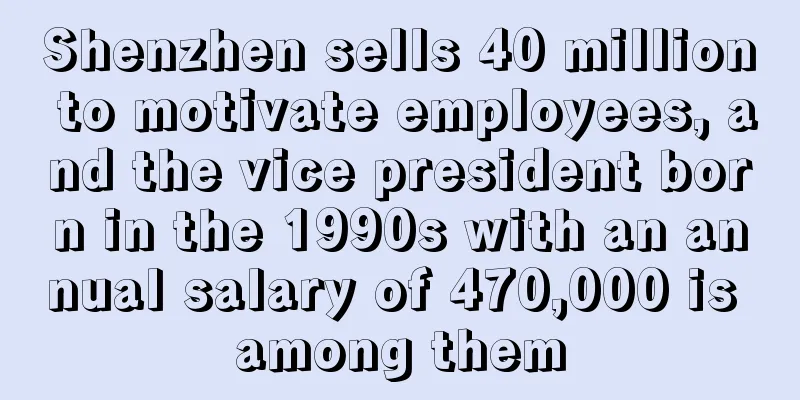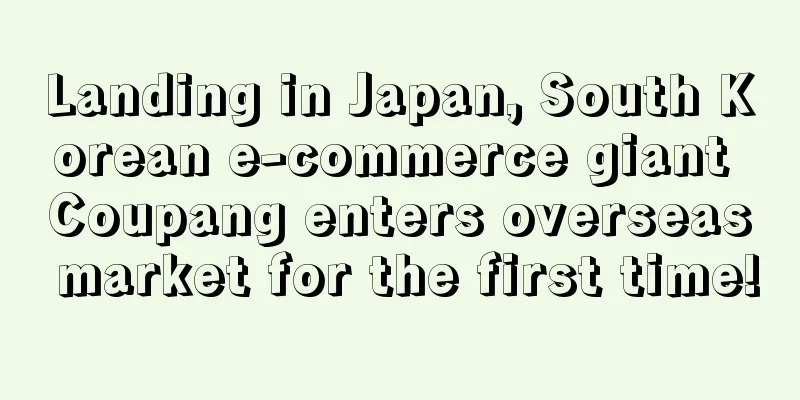Well-known cross-border e-commerce platform crashes! Affects Chinese sellers

|
Singaporean e-commerce platform Qoo10 has been ordered to liquidate by the court.
Recently, the Singapore High Court ordered the liquidation of Qoo10 and has appointed a liquidator to handle liquidation matters. According to insiders, the reason why Qoo10 has come to this point is that it has fallen into financial difficulties.
Qoo10 is the parent company of e-commerce platforms such as Wish, TMON, and Wemakeprice. It was once the largest cross-border e-commerce platform in Singapore. "Not long after acquiring Wish, the Qoo10 platform began to go downhill," said several industry insiders.
Falling into financial difficulties, Singapore's well-known e-commerce platform is going to be liquidated
For the general public, Qoo10's situation began to deteriorate when its two major e-commerce platforms, TMON and Wemakeprice, were exposed for owing payments to sellers.
As early as July this year , hundreds of Wemakeprice merchants broke the news that they had not received the payment for May. Soon after, TMON also encountered similar problems. At first, the platform said that this was a system settlement error and appeased the sellers. However, the problem was not solved over time, and the situation became worse.
Eventually, the matter attracted the attention of the Korea Fair Trade Commission, which formally launched an investigation into the two Korean e-commerce platforms. The Korean government originally estimated that the amount of overdue payments was 1 trillion won, but after liquidation, it was found that the amount was as high as 1.3 trillion won (about 978 million US dollars).
TMON and Wemakeprice have collapsed one after another, and their parent company Qoo10 is no exception, with news of layoffs and financial difficulties. According to Korean media reports, Qoo10 headquarters laid off more than 80% of its employees. The Singapore office originally had hundreds of employees, but after the layoffs, only a very small number of senior management and staff remained. As the company is facing a serious financial crisis, the laid-off employees have almost no benefits and compensation.
In November, Qoo10 was ordered to be liquidated by the Singapore High Court, and liquidators have taken over the company's management.
Qoo10 is a private e-commerce platform established in Singapore, with business covering Singapore, South Korea and the United States. It is committed to providing users with a wide range of products and a pleasant shopping experience. By observing the attributes of the platform's products, it can be found that the prices of the products are mostly good and cheap, and there are many varieties. Due to its obvious low price advantage, Qoo10 has a very heavy weight in the hearts of Singaporean consumers and has been the largest e-commerce platform in Singapore for several consecutive years.
Qoo10 Group operates multiple websites, including TMON and Wemakeprice, Qoo10.com, Qoo10.sg, InterPark and Wish. It can be said that Qoo10 is very keen on acquisitions.
Qoo10 was once glorious, but its two subsidiaries, which are now in trouble, actually have a relatively high status in South Korea. In 2023, TMON and Wemakeprice were the fourth and fifth largest e-commerce platforms in South Korea, respectively, with a total of nearly 9 million users. It is worth noting that WeMakePrice is one of the largest fashion shopping platforms in South Korea, known as the "Korean version of Xiaohongshu" in the industry. Because it is deeply loved by young Korean consumers, it was also awarded the title of "the most popular e-commerce platform among young Koreans" in 2022.
"Qoo10's situation began to take a sharp turn for the worse shortly after the acquisition of Wish," said one seller.
Compared with globally renowned cross-border e-commerce platforms such as Amazon and eBay, Qoo10 may not have a high status among sellers. However, the "Wish acquisition case" that caused a sensation in the cross-border circle this year successfully made Qoo10 a little famous.
In February this year , ContextLogic, the parent company of Wish, one of the leading mobile e-commerce platforms in North America, announced plans to sell the Wish e-commerce platform to Qoo10. In April, news showed that Qoo10's acquisition of Wish was completed. Qoo10 Pte. Ltd owns and operates the Wish platform and all ContextLogic subsidiaries related to the Wish e-commerce platform.
At the beginning, the acquisition price negotiated by both parties was approximately US$173 million in cash, but the amount was reduced to approximately US$161 million during the acquisition. Wish, once known as one of the "Four Major Cross-border E-commerce Platforms" along with Amazon, eBay, and AliExpress, seems to have completely moved away from its glorious days with the completion of this acquisition.
In response to the debt dispute between TMON and WeMakePrice, Wish stated that the two companies are separate from Wish in terms of operations. We do not have information about these two companies, nor do we have information about Q0010's future plans for these two entities, so we cannot comment on the relevant events.
In addition, Wish and Qo010's other subsidiaries (including TMON and WeMakePrice) are independent legal entities.
Some people are owed more than 100,000 RMB! Chinese sellers are affected
Unfortunately, the platform is facing liquidation, and suppliers who rely on the platform are inevitably affected. Korea Culture Promotion Inc , SCI Ecommerce, 21st Century Healthcare, Mister Mobile Trading and a foreign trade company from Shenzhen have all been owed money for goods, with some owed as much as S$72 million.
Many sellers have also not been able to get their money back yet.
One seller said that the platform still had about S$21,000 in sales that had not been settled, and he had applied for a withdrawal for several months, but the problem had not been resolved.
Another seller also said that Qoo10 owed him more than S$11,000. Although the backend showed that the payment had been settled, he did not receive any payment funds from the platform.
It is understood that many Chinese sellers have settled in e-commerce platforms such as Qoo10 and WeMakePrice. In 2022, WeMakePrice started recruiting merchants in China. At that time, the platform claimed to be the e-commerce platform with the lowest commission in the industry, and there were few Chinese sellers settled in, so the competition was small, and it successfully attracted many Chinese sellers to settle in.
After hearing the news of Qoo10's collapse, a seller who has already quit the platform said he was very lucky: " Fortunately, I jumped out two years ago . At that time, the daily order volume was very low, and the official staff kept calling to urge me to buy advertisements. In fact, the advertising effect was not very good ..."
"The stores on the Qoo10 platform are basically large grocery stores. In the current cross-border e-commerce environment, can this model still make big money? " Another seller who once joined the platform believes that low prices are Qoo10 's advantage, but the platform also has many hidden dangers.
Nowadays, "multi-platform layout" has become the development consensus of the majority of cross-border sellers. Popular e-commerce platforms in South Korea, the United Kingdom, Germany, Singapore, the Middle East and other places have become the first choice for some people. These platforms are relatively niche, and there are not many Chinese sellers settled in, and the competition is relatively small, but some of these platforms may have hidden dangers. If sellers are not careful, they may fall into a situation where they lose both money and goods. For example, Jollychic, a cross-border e-commerce platform in the Middle East, was the platform with the largest e-commerce market share in many countries in the Middle East at its peak. However, in 2022, it was discovered that its website, App, and seller center login pages could not be opened one after another. A large number of suppliers were owed money for goods, and Jollychic's solution was to pay them at 20% or even 10% off the payment. Some suppliers had no choice but to agree, and a group of suppliers strongly opposed it and have not received the money until now...
Various signs indicate that cross-border e-commerce is a business with both benefits and risks, and sellers must be cautious when choosing a platform to join.
South Korea |
<<: Destroy Black Friday! Amazon.com suffers massive "errors"
Recommend
What is Evergreen Hong Kong Limited? Evergreen Hong Kong Limited Review, Features
Evergreen Hong Kong Limited was formerly known as ...
Nearly 2/3 of Google searches last year resulted in zero clicks? Google: The problem isn't that serious
Remember a few days ago, the editor published an ...
The buyer paid taxes twice. Something went wrong shortly after the EU tax reform policy was implemented?
According to official disclosure by AliExpress, e...
How to save those sellers who are driven crazy by “follow-selling”?
Amazon's copycat sales are rampant. How can s...
OnBuy leads the UK e-commerce market, founder dissatisfied with Amazon's charging system
OnBuy is an online retail platform founded in Nov...
Amazon launches new service, sellers: not buying it
Recently, Amazon US announced that Amazon has lau...
What is GatherOne? GatherOne Review, Features
GatherOne is an overseas traffic media account op...
Amazon US releases new announcement: delivery will be more on time
Recently, Amazon US announced that it has added a...
Online shopping to account for 51% of global sales post-pandemic
Foreign media reported that after the pandemic, o...
Amazon's first domestic industrial belt collection and operation center is established in Yiwu
On the morning of November 19, Amazon's globa...
What is DianMo? DianMo Review, Features
Dianmo has rich channel resources covering many r...
Consumer confidence has fallen to the lowest level in nearly a decade. Is the US market still okay?
The U.S. Department of Commerce released a set of...
A group of Amazon operators were badly screwed by debt and backstabbing
The new year has just begun. Do Amazon employees ...
What is MobilePay? MobilePay Review, Features
<span data-docs-delta="[[20,{"gallery"...
What is Jia Wan Jin Department Store? Jia Wan Jin Department Store Review, Features
<span data-docs-delta="[[20,{"gallery"...









